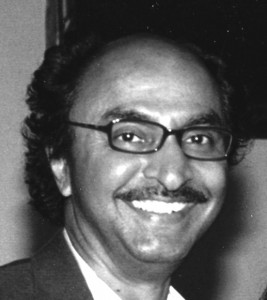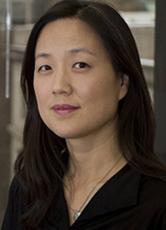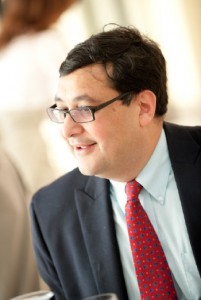Idea of the City: The Asian Challenge
Dominant theorizations of global cities and their surrounding urban regions are rooted in the Euro-American experience. This panel asks whether current visions on the Asian city, articulated by urban theorists and adopted by policy-makers in Asia, are starting to challenge that dominance. Are there today ‘ideas of the city’ based on specific Asian historical experiences and the unprecedented challenges and opportunities found in expanding Asian metropolises? If not, can we see the emergence of new theorizations and practices happening in the near future? What are the lessons from Asia that can contribute to improve dominant urban theories, models, and practices in the 21st century? Panelists will engage with these questions, offering their assessment from their own academic and professional angle.
Click here to view the conference agenda with presentation titles and abstracts. A video of this panel is available here.
Moderator:
 Deepti Malhotra Nijhawan, India Initiatives Director
Deepti Malhotra Nijhawan, India Initiatives Director
Boston University Global Programs
Deepti Malhotra Nijhawan is an architect and urban planner by training. She came to Boston University (BU) in 2012 as Director of India Initiatives for BU’s Global Programs, coordinating the University’s India efforts by engaging with faculty, developing relationships with partner institutions, and overseeing many of the administrative components for BU programs in India. She first followed her passion to work with India at the Massachusetts Institute of Technology (MIT) where she served as Managing Director of the MIT-India Program for more than seven years. At MIT, she was also an Instructor at the Edgerton Center and taught a seminar course on the Urban Planning challenges of Indian cities. She has presented at several higher education conferences including at the University of Rhode Island and the University of Alberta. Before joining MIT, Nijhawan gained extensive experience as an urban planner at the Boston Redevelopment Authority and the Cambridge Housing Authority. She graduated from the University of Pennsylvania with two Master’s degrees in City Planning and Architecture, and earned a Bachelor of Architecture degree at the Delhi University School of Planning and Architecture.
Speakers:
 Bish Sanyal, Director, Special Program on Urban and Regional Studies
Bish Sanyal, Director, Special Program on Urban and Regional Studies
Massachusetts Institute of Technology
Bish Sanyal is Ford International Professor of Urban Development and Planning in the Department of Urban Studies and Planning at MIT. He also heads the Hubert H. Humphrey Fellowship Program at MIT and is Director of the MIT Comprehensive Initiative on Technology Evaluation (CITE) as part of USAID’s Higher Education Solutions Network (HESN), which gave a $10 million grant under Prof. Sanyal’s leadership to evaluate technologies for the poor. Prof. Sanyal has written extensively on cities and city planning in developing countries, particularly on how to integrate the majority of urban population who are poor into the physical and economic fabric of the city. He has also written on internationalization of planning education. Prof. Sanyal’s publications include five books, his most recent (2012) is Planning Ideas that Matter (MIT Press); and he is working on a manuscript Hidden Successes: Innovative Institutional Responses to India’s Urban Challenges. With funding from the Rockefeller Foundation, Prof. Sanyal co-lead a project with Prof. Larry Vale to create the curriculum for a new university, the Indian Institute of Human Settlements in Bangalore, India. The final report on the project, Towards a Global Learning Community: MIT’s Report to the Rockefeller Foundation on Curriculum for the Indian Institute for Human Settlements was published in July 2013. Prof. Sanyal was named a MacVicar Faculty Fellow at MIT in 2011 for outstanding contributions to undergraduate education, and he was awarded the Distinguished Alumnus Award 2011 from his alma mater, the Indian Institute of Technology, Kharagpur. He has advised governments in four continents, as well as leading international institutions. For more on Professor Sanyal’s projects and work, please visit his website at: http://sanyal.scripts.mit.edu/site/

Annette Kim, Director, Spatial Analysis Lab (SLAB)
Price School of Public Policy, University of Southern California
Annette Kim is an Associate Professor of Urban Planning and Development at the University of Southern California’s Price School of Public Policy. She is also the Founder and Director of the Spatial Analysis Laboratory. The lab experiments with critical cartography and spatial ethnography in order to generate data about and re-conceptualize contemporary urbanism and find more inclusive and humane ways to design and govern the 21st century city. Prof. Kim’s research analyzes the spatial processes of major institutional change, particularly the reconstruction of property rights and planning paradigms in rapidly urbanizing regions. Her publications include studies of the first generation of private real estate developers in Vietnam, the political struggle for land and compensation on the urban periphery in Asian cities, the contestation for sidewalk space in the midst of migrant street vending and populist urbanism, and Beijing’s bomb shelter housing market. Professionally, she has designed affordable housing, managed construction projects, juried international urban design competitions, and consulted governments, multi-laterals, and NGOs. Prof. Kim received her Ph.D. in City and Regional Planning and M.A. in Visual Studies from the University of California, Berkeley and a M.P.P. from Harvard University.

Adil Najam, Dean, Pardee School of Global Studies
Boston University
Adil Najam is an expert in international diplomacy and development. His research interests include sustainable development, Muslim and South Asian politics, environmental politics in developing countries, and philanthropy among immigrant communities in the United States. Much of his work has focused on longer-term global policy problems, especially those related to human well-being and sustainable development. He contributed to Pakistan’s first environmental policy document, as well as to that country’s report to the 1992 Rio Earth Summit, has worked closely with governments and civil society in both industrialized and developing countries, and regularly collaborates with the United Nations. He is a Senior Fellow at the International Institute for Sustainable Development (IISD), a Visiting Fellow at the Sustainable Development Policy Institute (SDPI), and serves on the Boards of the Pakistan Institute for Environment-Development Action Research (PIEDAR) and the Centre for Global Studies at the University of Victoria, Canada.